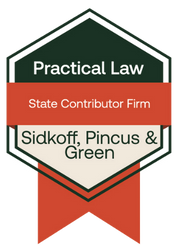Investment Banker Can be Held Liable for Sending False Statements in Email Signed by Director of Firm

 In the case, Lorenzo v. Securities and Exchange Commission, the U.S. Supreme Court recently ruled that an investment banking director can be held liable for false statements he emailed to a client, even though the director’s boss wrote the content of the email and directed him to send it. In a 6-2 ruling, the court found that the director could be held liable under securities laws, even though the 2011 decision in Janus Capital Group v. First Derivative Traders found that liability for false statements only applied to those with “ultimate authority over the statement.”
In the case, Lorenzo v. Securities and Exchange Commission, the U.S. Supreme Court recently ruled that an investment banking director can be held liable for false statements he emailed to a client, even though the director’s boss wrote the content of the email and directed him to send it. In a 6-2 ruling, the court found that the director could be held liable under securities laws, even though the 2011 decision in Janus Capital Group v. First Derivative Traders found that liability for false statements only applied to those with “ultimate authority over the statement.”
However, the Court in Lorenzo distinguished the Janus decision due to the fact that the Janus decision was based specifically on the second prong of the Securities and Exchange Commission Rule 10b-5, which prohibits individuals or entities from making untrue statement of material fact or omitting a material fact. The person making the statement has “ultimate authority of the statement,” according to the court. Unlike in Janus, the Court found in Lorenzo that the first prong of Rule 10b-5, which bars any device, scheme, or artifice to defraud, applies.
According to Court documents, in October of 2009, the director was told that the total assets of his only investment banking client at the time – Waste2Energy – was less than $400,000. However, on October 14, 2009, the director reached out to prospective investors via email about Waste2Energy. The emails stated that the company had assets of $10 million. The emails were signed by the director, but he testified that the firm’s owner instructed him to send the emails.
In addition to being fined $15,000 for sending the emails, the SEC barred the director from working in the securities industry. While Lorenzo argued that since he did not make the untrue statement, he should not be held liable under Janus, Justice Breyer, writing for the majority, affirmed the Circuit Court decision, which stated that the director violated subsections (a) and (c) of Rule 10b-5 and related statutory provisions.
Examples of Investment Fraud
The following are common examples of investment fraud and financial advisor misconduct:
- Securities fraud
- Failure to disclose the risks associated with certain investments
- Making frequent trades for the purpose of generating commissions, also known as churning
- Lack of suitability
- Unauthorized trading
If an investor wants to file a claim against a financial advisor, the Financial Industry Regulatory Authority (FINRA) Rule 12200 states that he or she must arbitrate their claims, as opposed to litigating the claims in court. The FINRA rules state that customers have six years from the time of the event to file a claim. Because FINRA arbitration orders are final, and can only be appealed in limited circumstances, it is highly recommended that investors seek legal counsel from an experienced FINRA lawyer.
Philadelphia FINRA Lawyers at Sidkoff, Pincus & Green, P.C. Assist Clients with FINRA Claims
If you have been the victim of investment fraud, you are urged to contact the Philadelphia FINRA lawyers at Sidkoff, Pincus & Green, P.C. We have handled a wide range of disputes involving investment fraud and financial advisor misconduct, and we will ensure that your legal rights are protected. To schedule a confidential consultation, call us today at 215-574-0600 or contact us online. From our offices in Philadelphia, we assist clients throughout Pennsylvania and New Jersey.




















 In the case of Jaiden Buchan v. The Milton Hershey School, the Pennsylvania Superior Court recently ruled that the clock does not stop on the statute of limitations for making a claim in state court, simply because someone voluntarily withdraws a lawsuit. Buchan filed a complaint against the school in December of 2016, alleging that the school had violated the Americans with Disabilities Act (ADA) and the Fair Housing Act. She voluntarily withdrew her lawsuit against the school on June 19, 2017. The plaintiff filed a writ of summons in July of 2017, but the court ruled that the voluntary withdrawal of her lawsuit was not the same as a federal court dismissing the case for lack of jurisdiction.
In the case of Jaiden Buchan v. The Milton Hershey School, the Pennsylvania Superior Court recently ruled that the clock does not stop on the statute of limitations for making a claim in state court, simply because someone voluntarily withdraws a lawsuit. Buchan filed a complaint against the school in December of 2016, alleging that the school had violated the Americans with Disabilities Act (ADA) and the Fair Housing Act. She voluntarily withdrew her lawsuit against the school on June 19, 2017. The plaintiff filed a writ of summons in July of 2017, but the court ruled that the voluntary withdrawal of her lawsuit was not the same as a federal court dismissing the case for lack of jurisdiction. In early March, the Department of Labor (DOL) released a proposal that would make it possible for more workers to collect overtime pay. According to the proposal,
In early March, the Department of Labor (DOL) released a proposal that would make it possible for more workers to collect overtime pay. According to the proposal, 